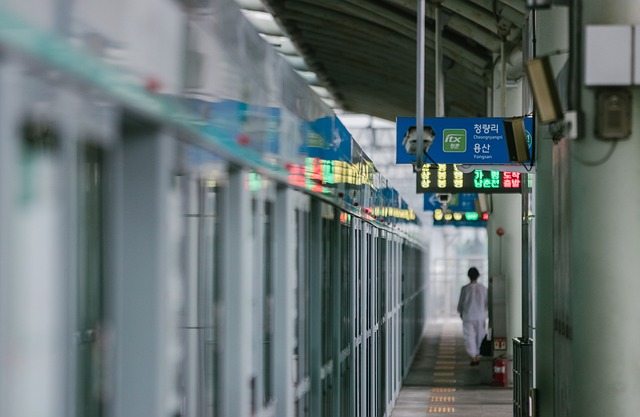The Impact of AI Bots on Trading: A Comprehensive Exploration
The rise of technology has significantly transformed various sectors, and finance is no exception. Among the innovations that have emerged in recent years, AI-powered trading bots have garnered immense attention from traders, investors, and financial institutions alike. These intelligent algorithms have revolutionized the trading landscape, offering new opportunities and challenges. In this article, we will delve deep into the world of AI bots for trading to uncover their advantages, challenges, and future prospects.

Understanding AI Trading Bots
Before we explore the implications of AI bots for trading, it is crucial to understand what these bots are and how they function. AI trading bots are sophisticated software programs that apply algorithms and machine learning techniques to analyze market data, identify trading opportunities, and execute trades without human intervention.
Key Components of AI Trading Bots
Data Analysis
Machine Learning
Execution
AI trading bots utilize historical and real-time data to predict market trends. Algorithms can process vast amounts of information much faster and more accurately than human traders.
These bots continuously learn from previous trades and market movements, allowing them to adapt to changing market conditions. This ability to learn and evolve is one of their most significant advantages.
Once a trading opportunity is identified, AI bots can execute trades instantly, which can be critical in fast-moving markets where timing is everything.
Advantages of Using AI Bots for Trading
The integration of AI trading bots into the trading process brings several notable advantages that can significantly enhance a trader's efficiency and efficacy.
1. Speed and Efficiency
One of the most significant benefits of AI bots is their ability to process information and execute trades at an astonishing speed. In today’s volatile market, even a fraction of a second can make a considerable difference. Human traders simply cannot compete with the speed at which AI trading bots operate.
2. Elimination of Emotional Bias
Trading can be an emotionally charged endeavor, with fear and greed influencing decisions. AI bots operate purely on data and algorithms, free from emotional biases. This objectivity can lead to more rational trading decisions and ultimately better outcomes.
3. 24/7 Trading Capabilities
Unlike human traders, who need rest, AI bots can operate around the clock. This means that they can monitor markets and execute trades continuously, ensuring that no opportunity is missed, regardless of the time of day.
4. Backtesting and Optimization
AI bots allow traders to backtest their strategies using historical data. This functionality enables traders to optimize their strategies before applying them in real time. They can refine their algorithms based on past performances and improve their chances of success.
Challenges and Risks Associated with AI Trading Bots
Despite their advantages, AI trading bots are not without risks. Understanding these challenges is essential for traders considering the use of such technology.
1. Overfitting
One major risk in the development of AI trading bots is overfitting. This occurs when the algorithm is too closely tailored to historical data and fails to generalize to new market conditions. A bot that performs exceptionally well during backtesting may struggle in live trading.
2. Lack of Adaptability
While AI bots are designed to learn and adapt, their performance can still be limited by the quality of the data they receive. They may struggle to anticipate or react to sudden market changes, potentially resulting in significant losses.
3. Technical Issues
Technical glitches or system malfunctions can lead to erroneous trading decisions. A bug in the code or issues with internet connectivity can potentially result in losing trades or the bot failing to execute trades altogether.
4. Ethical Concerns
The use of AI in trading raises ethical questions about market manipulation, transparency, and fairness. The potential for AI bots to influence markets disproportionately makes it necessary to consider regulatory frameworks surrounding their use.

The Future of AI Bots in Trading
As technology continues to evolve, the future of AI trading bots will likely see further advancements and integration into various aspects of trading.
1. Improved Algorithms and Machine Learning
As machine learning techniques become more advanced, AI trading bots will likely become better at analyzing data and making more informed decisions. The advent of deep learning could enable bots to recognize complex patterns that were previously undetectable.
2. Enhanced Collaboration with Human Traders
Rather than replacing human traders, AI bots will likely serve as powerful tools that assist traders in their decision-making processes. The collaboration between AI and human intuition can lead to optimal trading strategies.
3. Greater Regulation and Oversight
As the use of AI bots becomes more prevalent, regulatory bodies will likely implement more stringent guidelines to address the ethical concerns associated with their use. Such regulations are vital to ensure fairness and transparency in the financial markets.
Conclusion
The emergence of AI bots for trading represents a significant milestone in the evolution of trading practices. While they offer numerous advantages such as speed, efficiency, and the elimination of emotional bias, they also present challenges and risks that must be acknowledged. As we move forward, the evolution of AI in trading will likely inspire further innovation, regulation, and a deeper understanding of how technology can complement human insight. Whether you are a seasoned trader or a newcomer to the financial world, staying informed and adapting to these changes is critical in harnessing the full potential of AI trading bots.